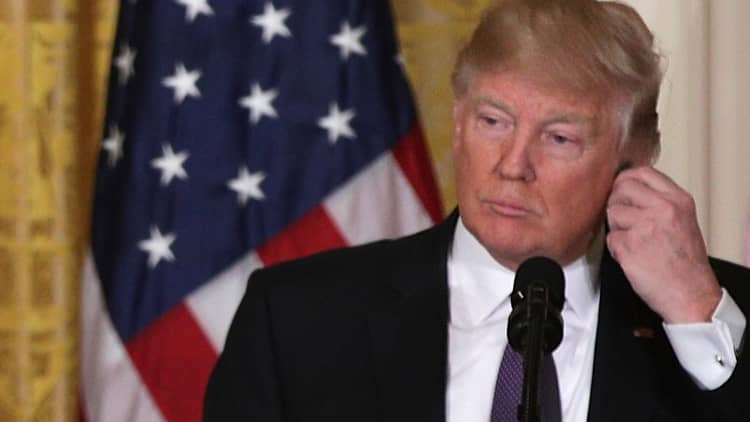
During his first four weeks in office, President Donald Trump has signed executive orders, met foreign leaders, prodded business chieftains and battled storms of controversy.
Among things he hasn't done: given congressional Republicans his plans for infrastructure improvements, health care or tax cuts.
That matters because presidential leadership is indispensable for achieving those objectives, each of which holds major significance for the American economy. Without it, even a Congress controlled by Trump's party will have immense trouble overcoming its own internal divisions.
In each case, here's why:
- On infrastructure, Trump has pledged a trillion-dollar improvement program, but not specified what that means. If he intends to pursue outlays anywhere close to that, he's certain to draw substantial Republican opposition but might offset those defections with support from Democrats. If he intends for most of his plan to consist of tax incentives for developers, he'd need a different coalition to succeed.
- On health care, Republicans are torn between their desire to repeal the program they've attacked for so long and their fear of backlash from Americans who'd lose their health insurance. They've also struggled with how quickly to offer to a replacement plan, which would immediately become a target for adversaries. In a news conference shortly before his inauguration, Trump promised that "as our secretary is approved and gets into the office, we'll be filing a plan." Tom Price became HHS secretary last week, and congressional Republicans still await his direction.
- On tax cuts, Republicans face a wide array of strategic choices. One is whether to overhaul corporate taxation only, or attempt the tougher task of individual tax reform as well.
- Trump told retailers Wednesday morning that his plan will involve cutting taxes "for virtually everybody in every category, individual and business." That would point toward larger budget deficits.
But some fiscal conservatives in Congress want tax overhaul to be "revenue-neutral." House Republicans, who plan to seek reductions in the top personal tax rate, are not on the same page with Senate Republicans, whose tax chairman did not include cuts in the top personal rate in his initial statement of objectives.
Nor do the two chambers have any consensus on the so-called border adjustment tax hitting imports and sparing exports. The House considers it vital; some Senate Republicans strongly oppose it, which makes the provision vulnerable in a chamber with a bare 52-seat majority.
Only one person has the clout to force resolution of differences like these. That's the president, who is currently embroiled in a crisis over interactions with Russia. The longer he remains silent, the harder it is for Congress to move.


